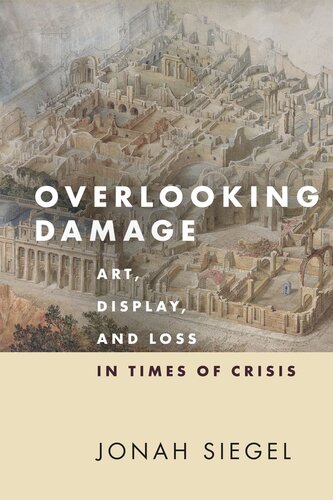

Most ebook files are in PDF format, so you can easily read them using various software such as Foxit Reader or directly on the Google Chrome browser.
Some ebook files are released by publishers in other formats such as .awz, .mobi, .epub, .fb2, etc. You may need to install specific software to read these formats on mobile/PC, such as Calibre.
Please read the tutorial at this link: https://ebookbell.com/faq
We offer FREE conversion to the popular formats you request; however, this may take some time. Therefore, right after payment, please email us, and we will try to provide the service as quickly as possible.
For some exceptional file formats or broken links (if any), please refrain from opening any disputes. Instead, email us first, and we will try to assist within a maximum of 6 hours.
EbookBell Team

4.3
58 reviewsWhat does it mean to look? How does looking relate to damage? These are the fundamental questions addressed in Overlooking Damage. From the Roman triumph to the iconoclasm of ISIS and the Taliban to the aerial views of looted landscapes and destroyed temples visible on Google, the relationship between beauty and violence is far more intimate than we sometimes acknowledge.
Jonah Siegel makes the daring argument that a thoughtful reaction to images of damage need not stop at melancholy, but can lead us to a new reckoning. Would the objects we admire be more beautiful if they were not injured or displaced, if they did not remind us of unbearable violence? Siegel takes up writers from the time of the French Revolution to today who have reacted to the depredations of revolutionary iconoclasm, colonial looting, and industrial capitalism, and proposes that in these authors we may find resources with which to navigate our contemporary situation.
Deftly bringing the methods of literary studies to bear on important debates in the study of heritage, archaeology, and visual culture, Overlooking Damage reflects on the ways in which concepts of beauty intersect with periods of epochal violence in an attempt to resist the separation of broken things from the worlds in which they have come to be embedded.